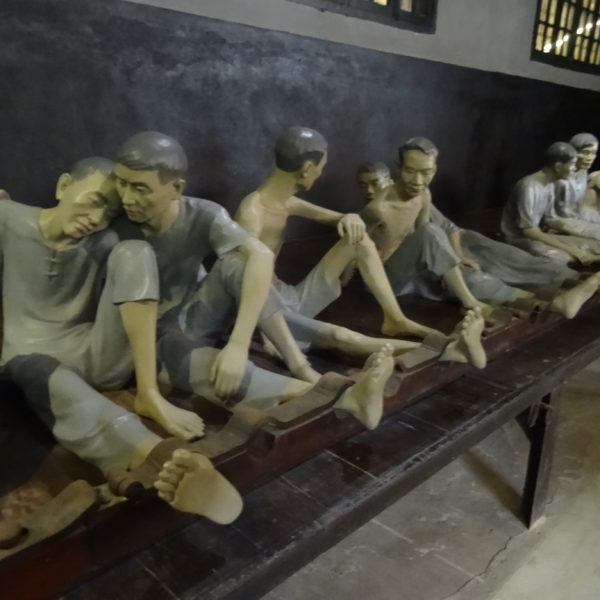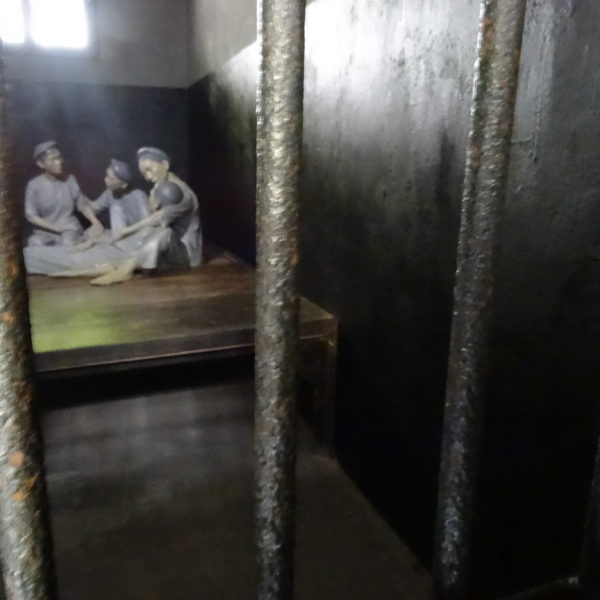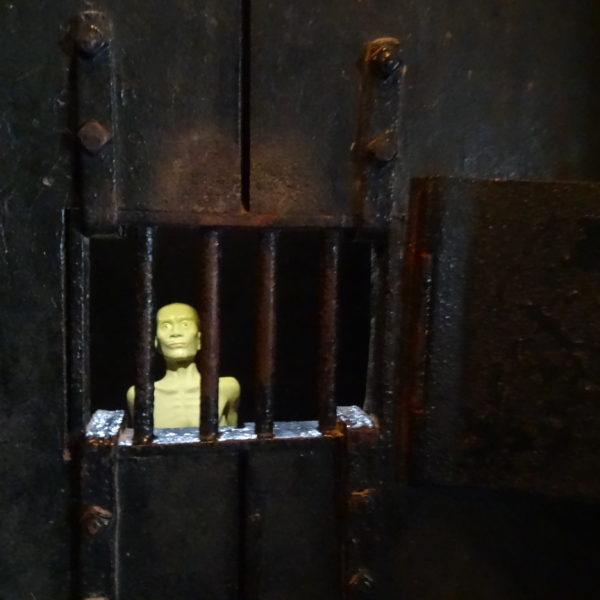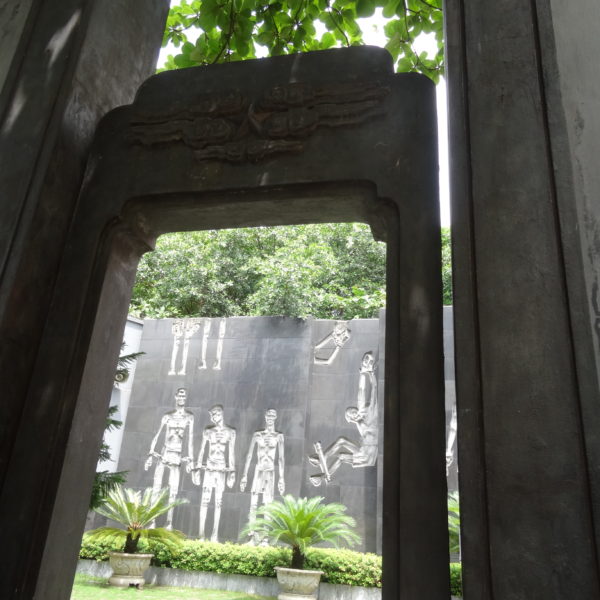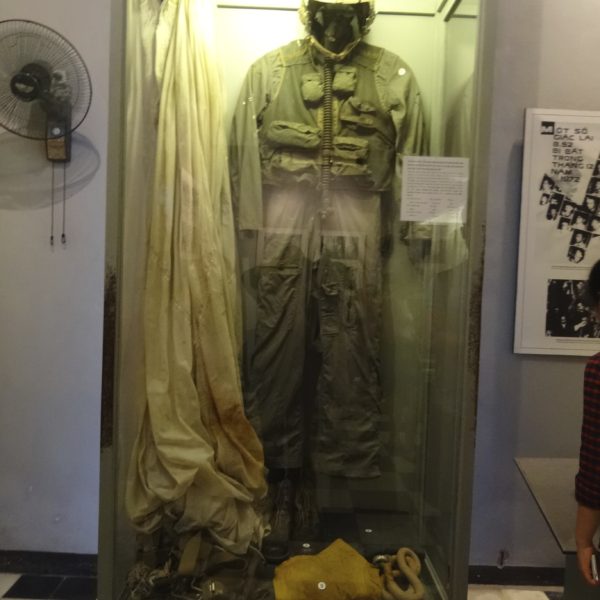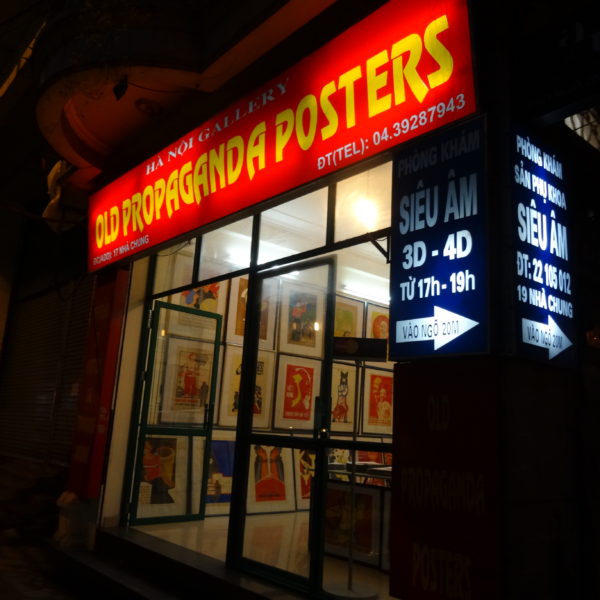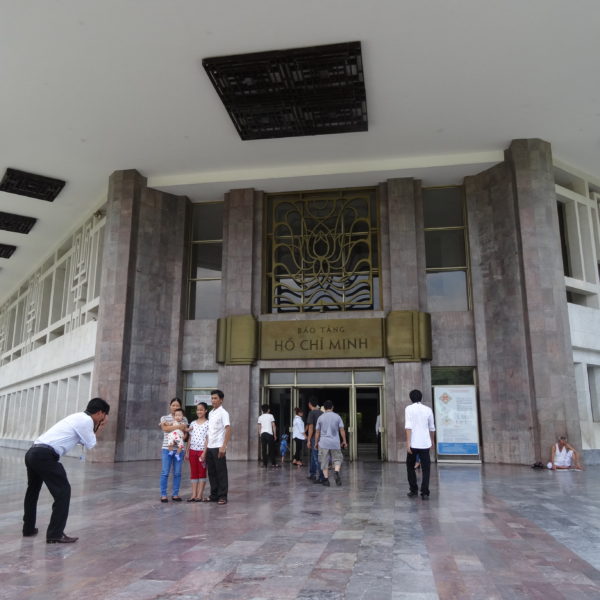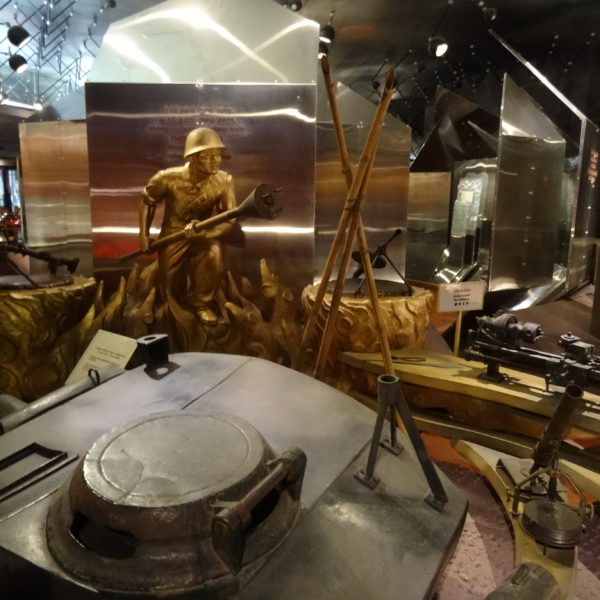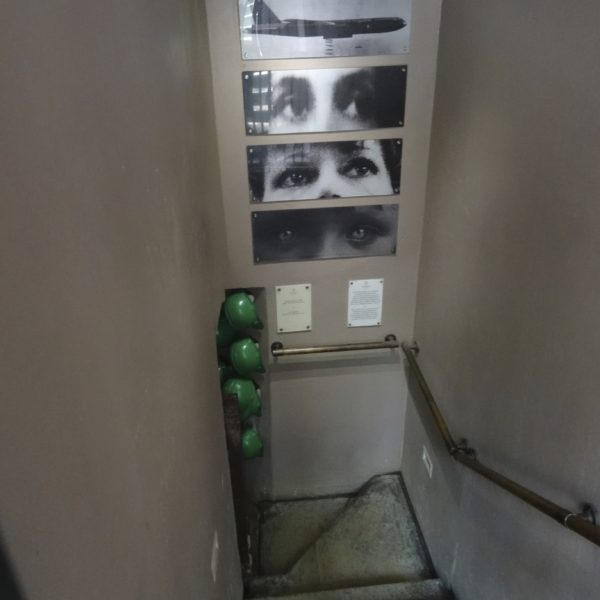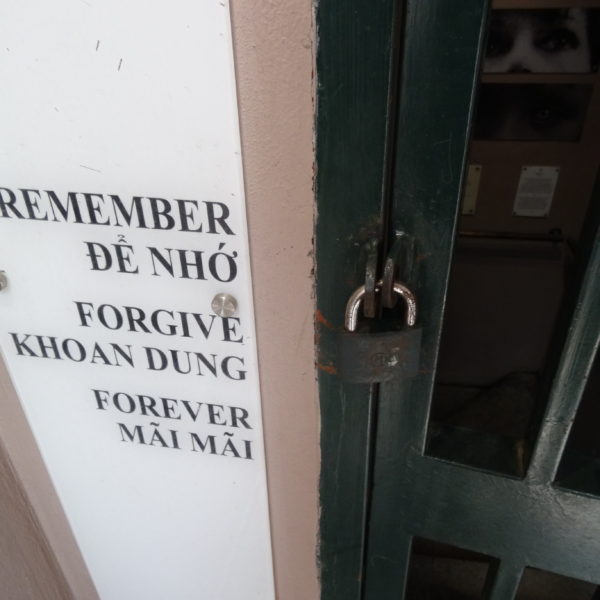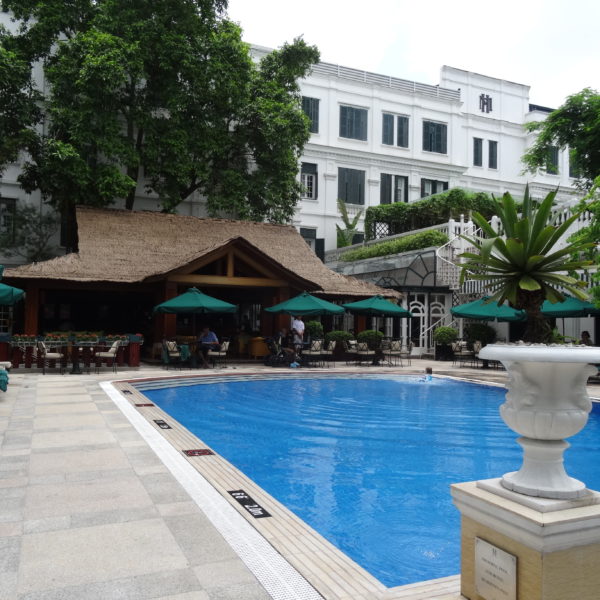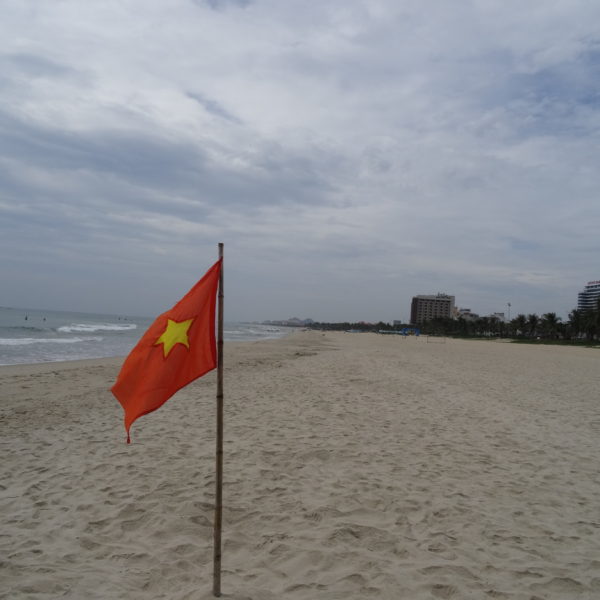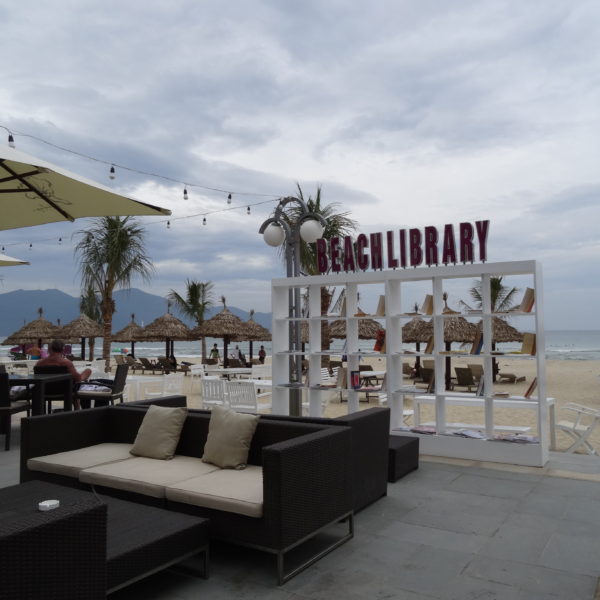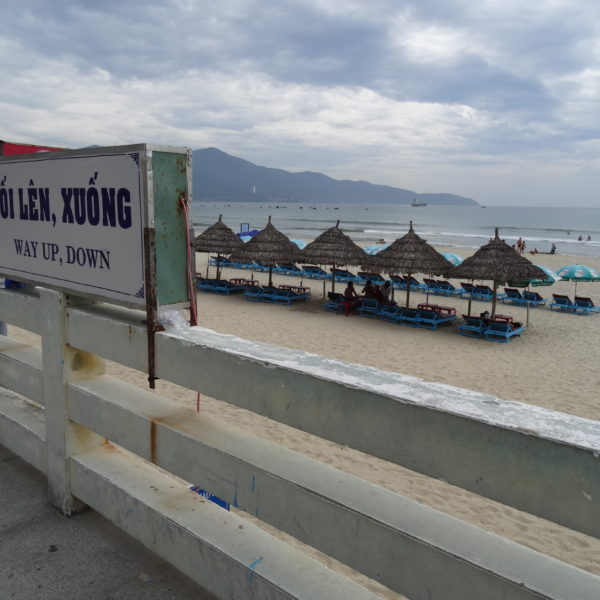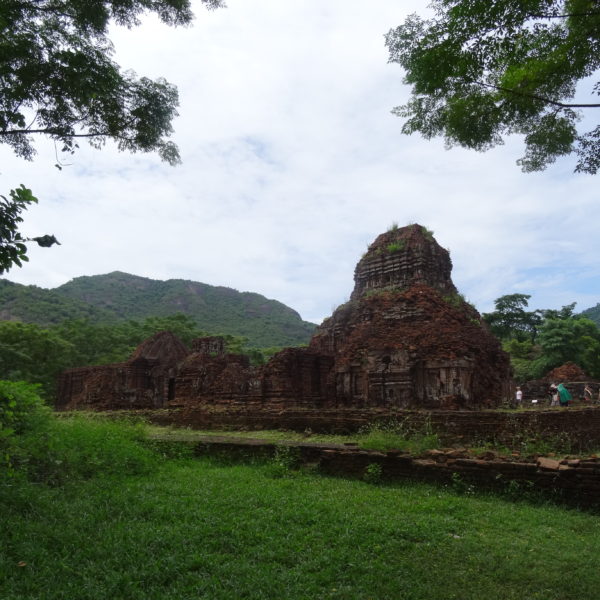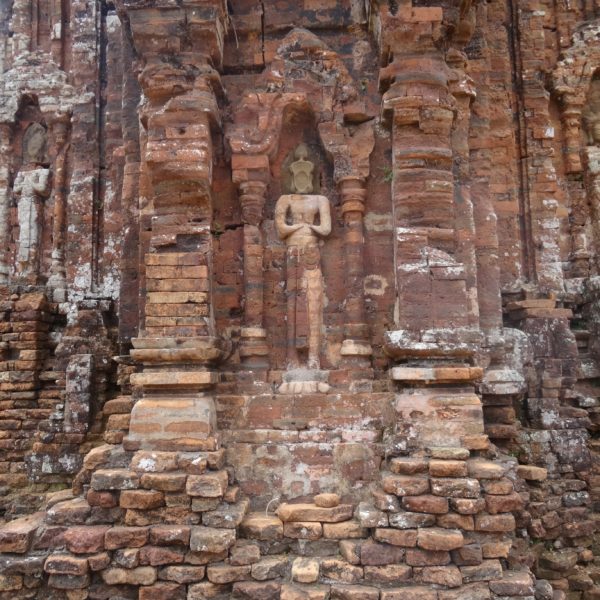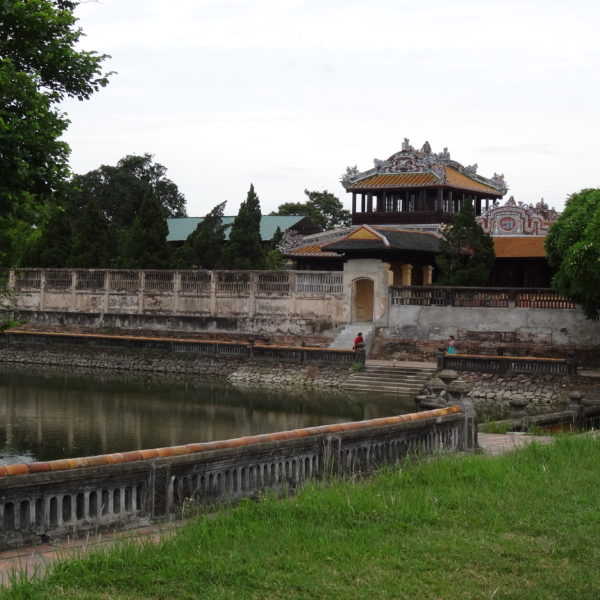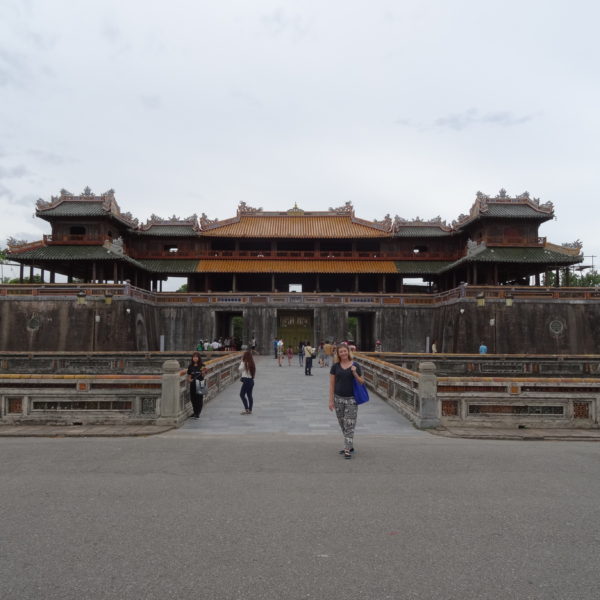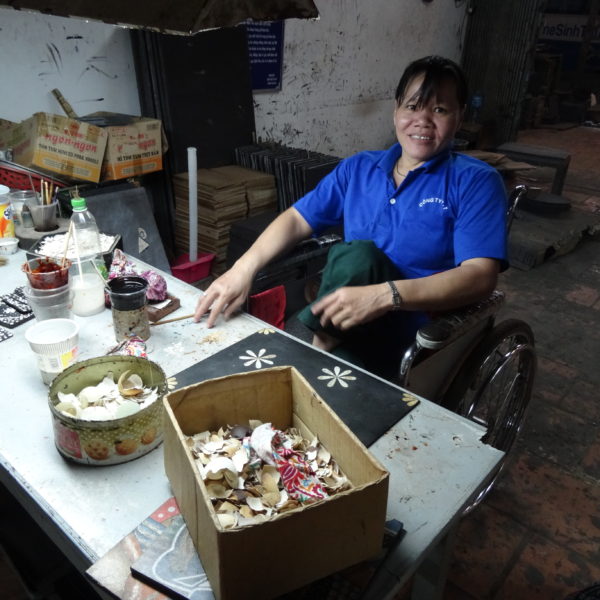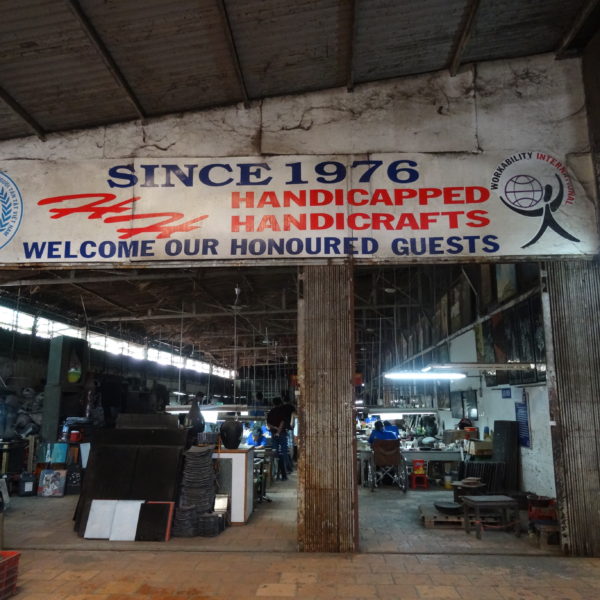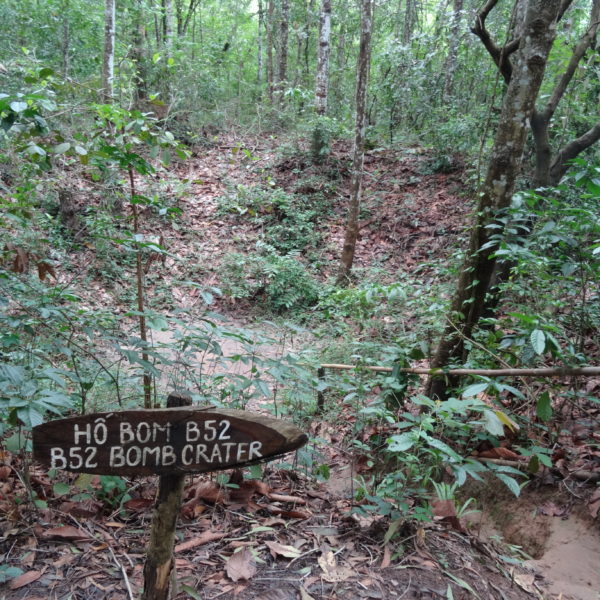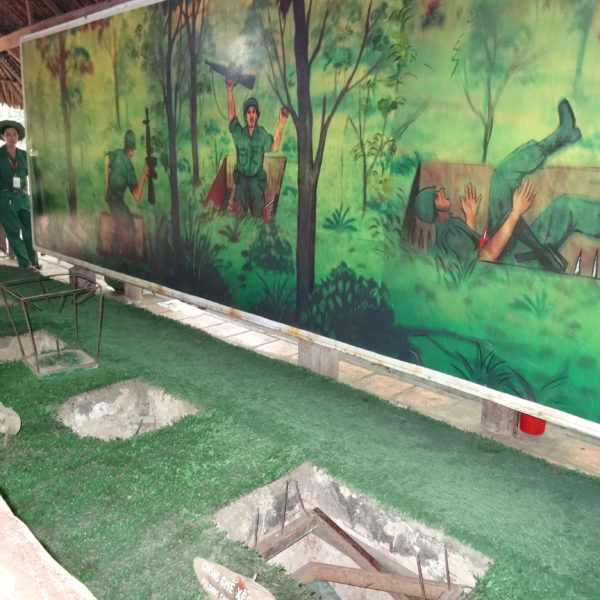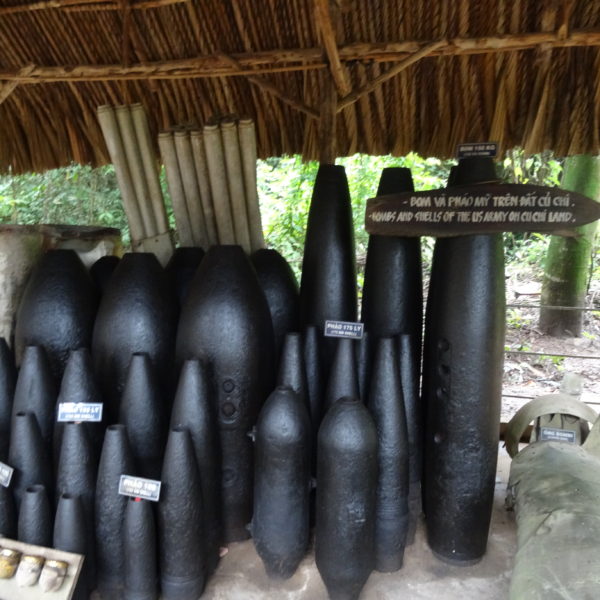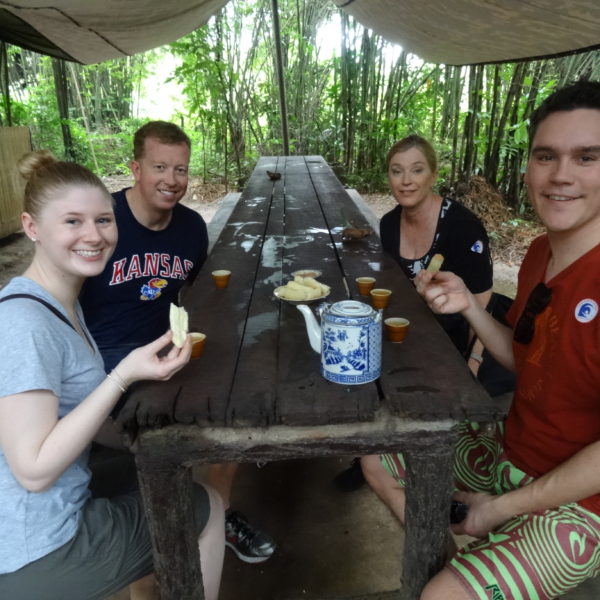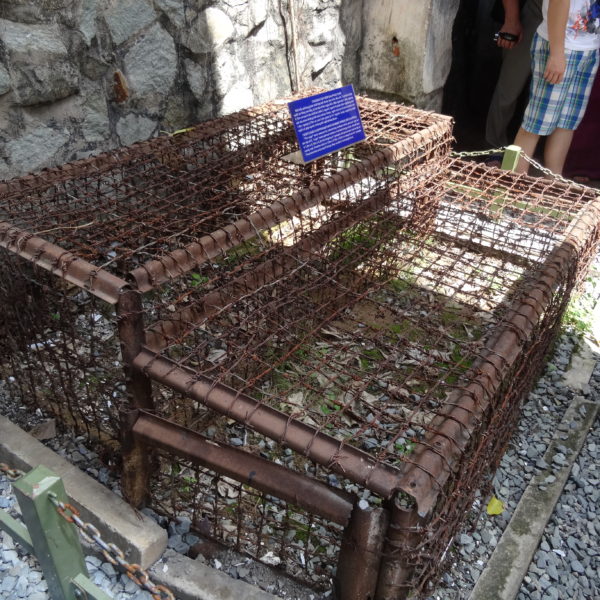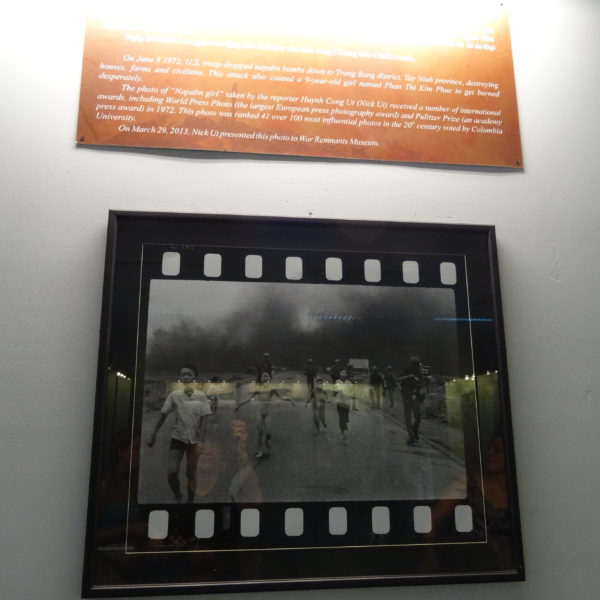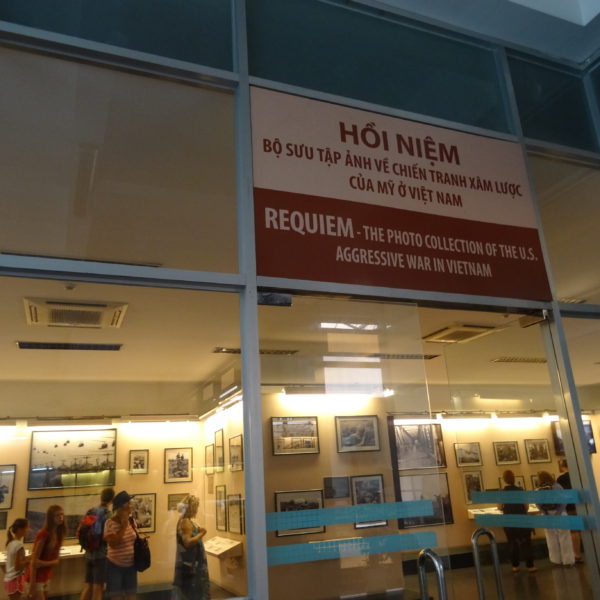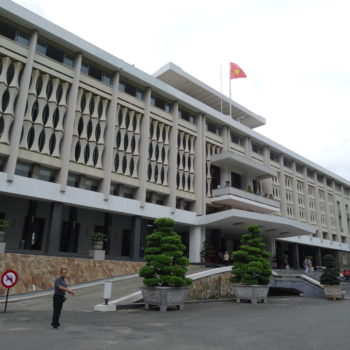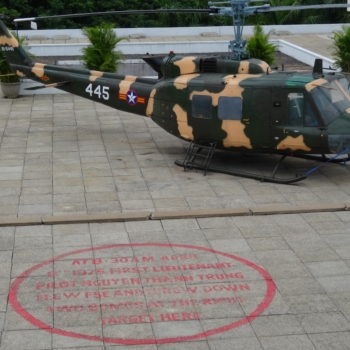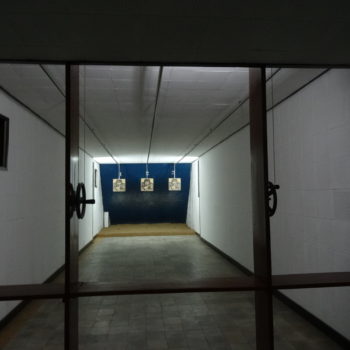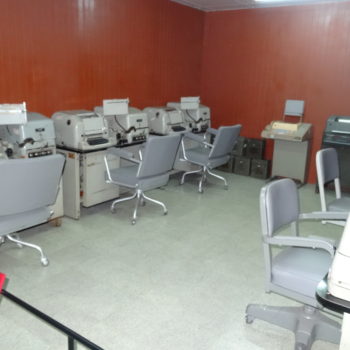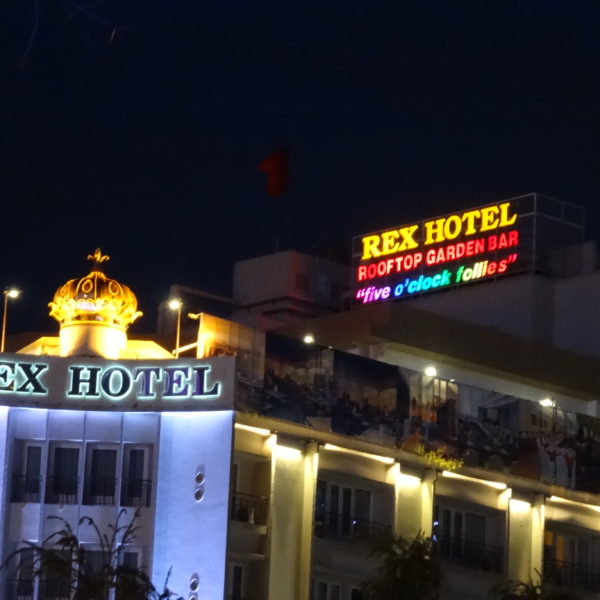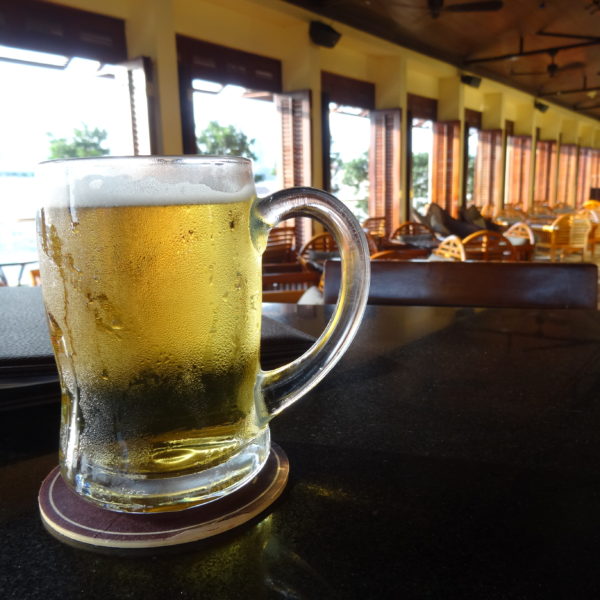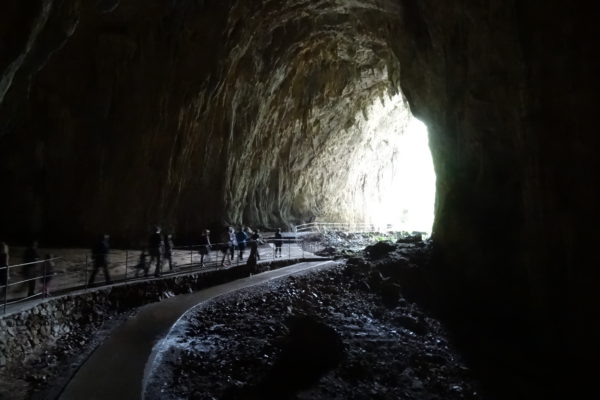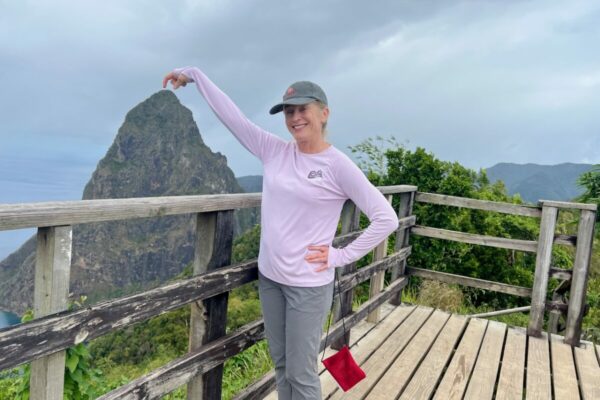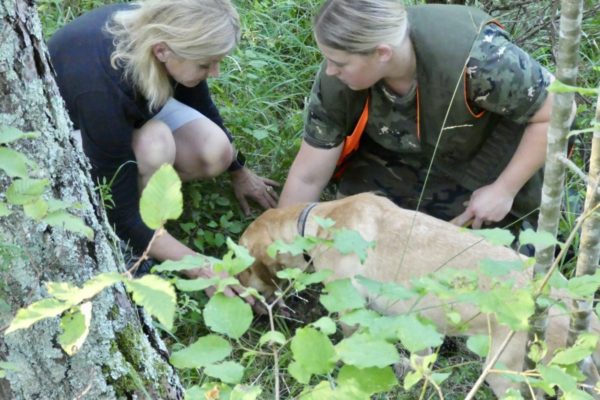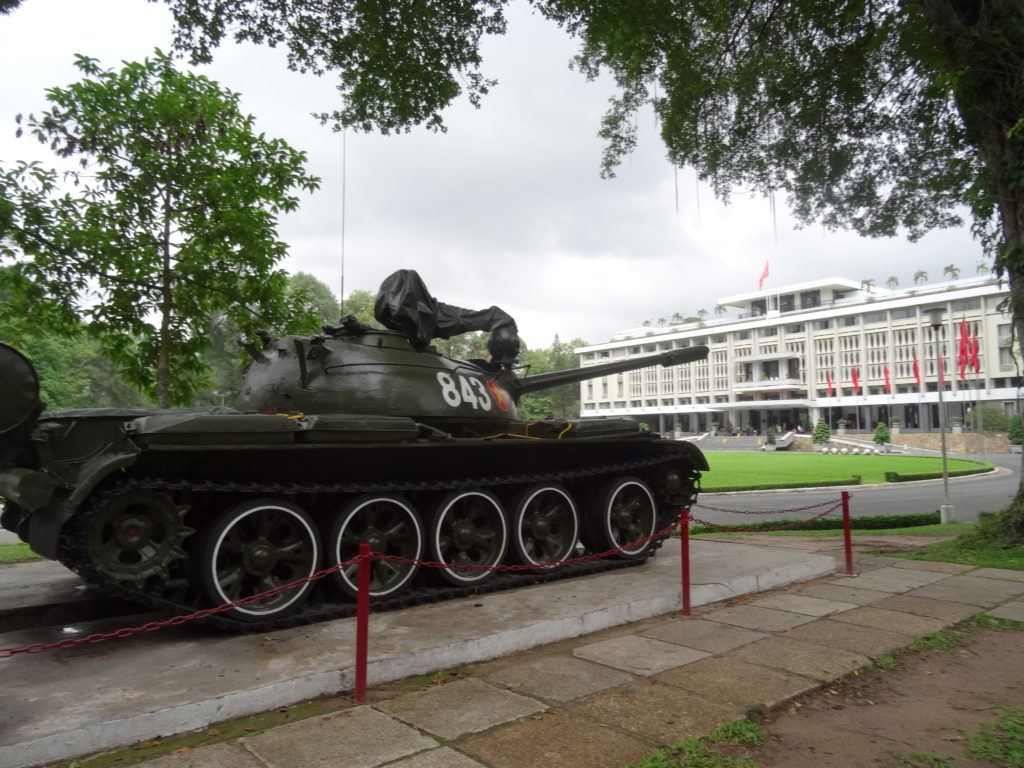

The Vietnam War defined a generation of Americans and Vietnamese in the 1960s and early 70s. When I went to Vietnam to teach TV presentation skills, I also spent some personal time at places that made the grim history of the conflict come alive, at Vietnam War memorial sites in and around Hanoi, Danang and Saigon (now Ho Chi Minh City or HCMC). Here are the top Vietnam War history memorial sites you should plan to visit.
- ‘Hanoi Hilton’ Hoa Lo POW prison
- Ho Chi Minh Museum
- Jane Fonda Bomb Shelter
- Hanoi Military History Museum
- My Khe beach in Da Nang (China Beach)
- Hue Citadel
- Cu Chi Tunnels
- My Son ruins
- War Remnants Museum in Ho Chi Minh City
- Reunification Palace
Vietnam POWs at the “Hanoi Hilton”
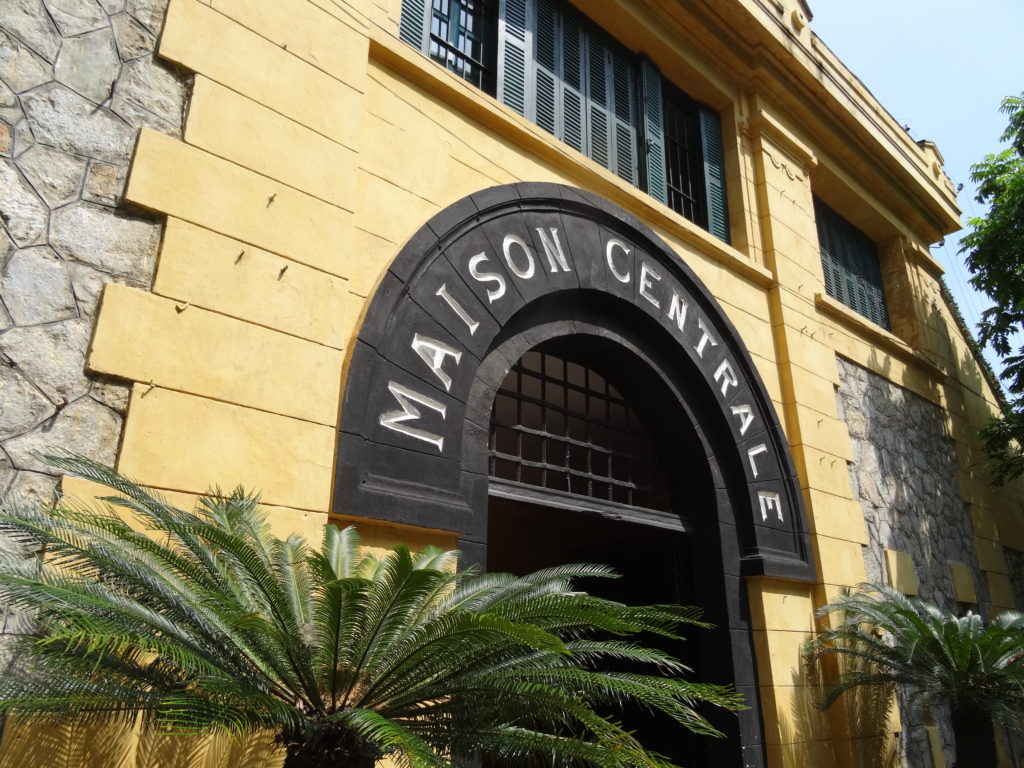
It says Maison Centrale (Central House) on the sign above the doorway to Hoa Lo Prison, the infamous “Hanoi Hilton” where American prisoners of war were confined during the conflict in Vietnam.
As an American who grew up hearing tales of the “Hanoi Hilton,” the Hoa Lo prison was number one on my sightseeing list. It’s an unpretentious building in the central district with a ticket window outside. You’ll see John McCain’s flight suit and other artifacts of the American pilots who were confined here as POWs. The items and photos portray the other side’s treatment of the American prisoners of war as something like a camp for unruly boy scouts. The hellholes that were the cells tell their own tales. You can read Senator McCain’s version here.
The main focus of the exhibit is on the French colonial period when the prisoners were Vietnamese, who schooled each other on Communism while held captive. You will come away with respect for all those who endured this place, no matter what side they were on. And yes, there is a Hilton-brand hotel in Hanoi, but it is called the Hilton Hanoi Opera.
Ho Chi Minh Museum in Hanoi
The Ho Chi Minh Museum displays other artifacts of the North Vietnamese leader and his Viet Cong fighters. The conflict is frequently referred to here as the “War of American Aggression.”
Jane Fonda’s Bomb Shelter in Hanoi
The deep divisions caused by the war in the US boiled over into outrage when actress Jane Fonda and singer Joan Baez visited Hanoi, in what critics called collaboration with the enemy. The celebrities’ bomb shelter can still be seen underneath the pool of the Sofitel Legend Metropole Hotel.
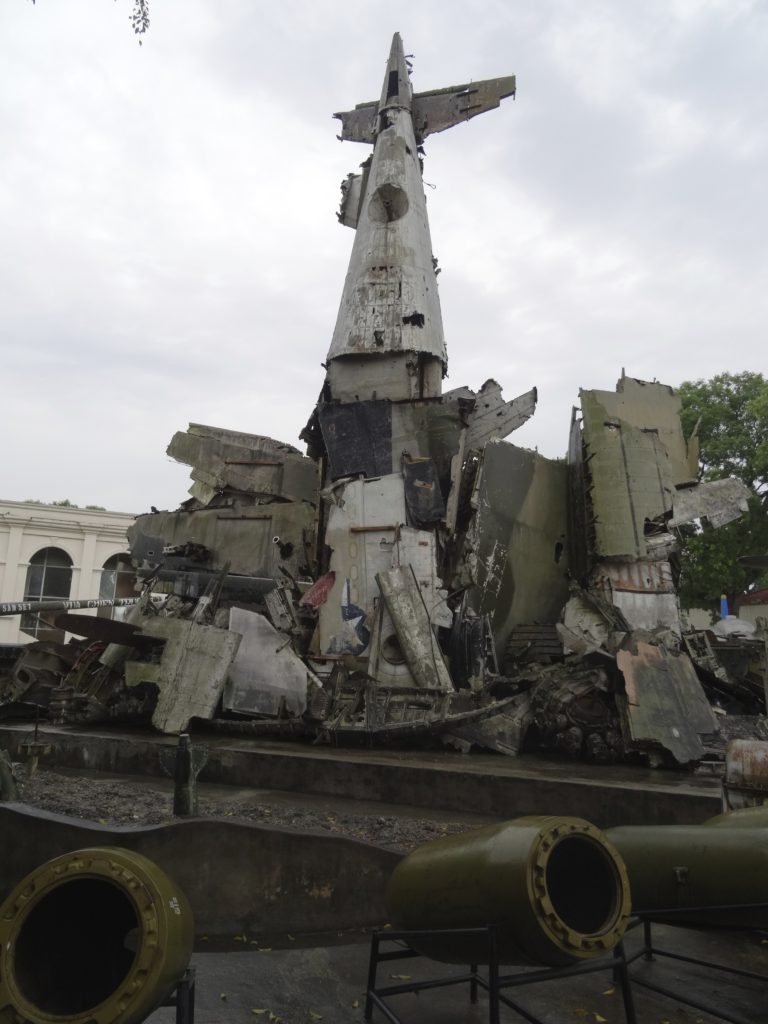
A pile of wreckage becomes a monument at Hanoi’s war museum.
Vietnam War Relics at Hanoi’s Military History Museum
What Americans didn’t see on the nightly news was the destruction wrought by US bombing missions over Hanoi. The wreckage of the war machines, as well as intact vintage aircraft from both sides, can be seen at the Military History Museum.
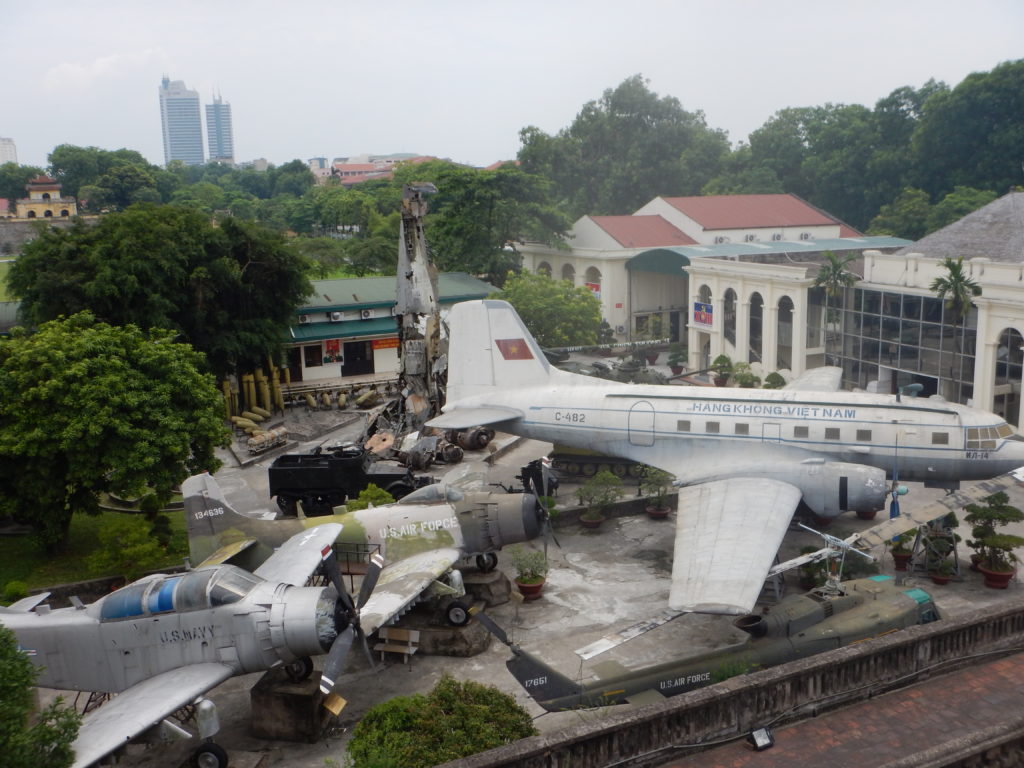
Collection of vintage aircraft from both sides of the Vietnam War at the Military History Museum in Hanoi.
And tucked away in a less touristy neighborhood, the wreckage of a B-52 still can be seen in a small lake.
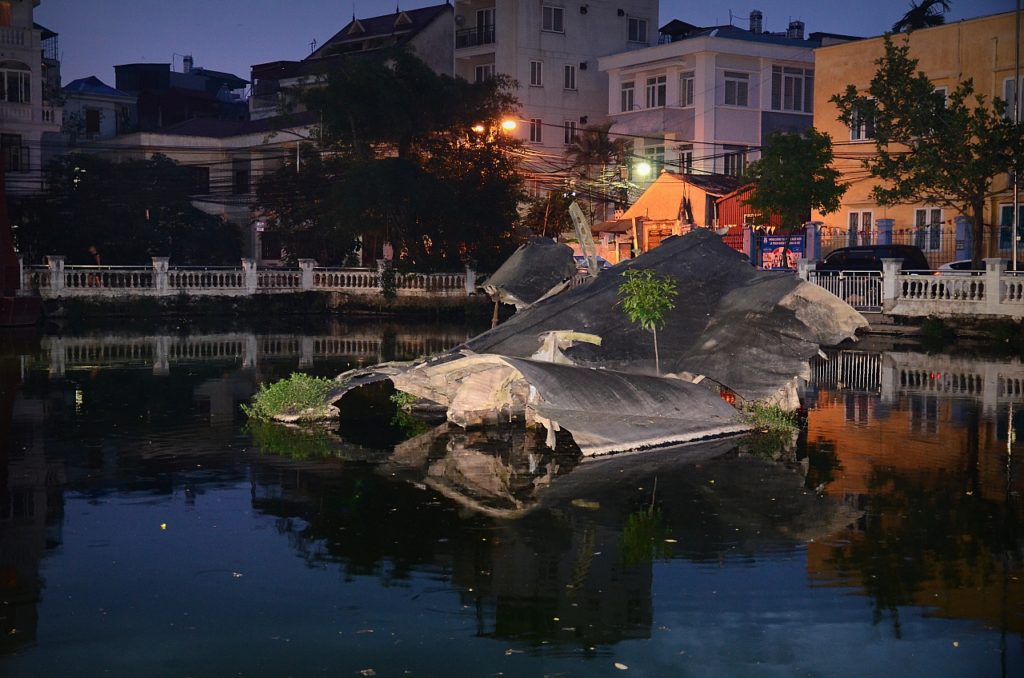
The wreckage of a US B-52 in a Hanoi neighborhood lake. Photo by Nguyen Viet Hai.
DaNang: Don’t Call it “China Beach”
“My Khe” beach was frequented during wartime by Americans in need of some R and R. The base also inspired a TV show called “China Beach,” showing the war from the women’s point of view. But when I posted a selfie from “China Beach,” it nearly caused an international incident with my students who firmly corrected me: “That’s not China’s beach!” Their emotions reflected both the current tensions with China in the East Sea and their understandable pride in this lovely, world class stretch of sand lined with resort hotels.
I stopped for a drink at the Beach Library bar at Holiday Beach resort, enjoying the relaxed vibes, cold beer and good music. However, there’s nothing here to connect the present resort to the wartime past.
Danang today is a delightful city with welcoming people. I can highly recommend the Brilliant Hotel; although it’s not on the beach, some front-facing rooms have a commanding view of the Dragon Bridge.
My Son Ruins: UNESCO World Heritage
The ruins of My Son can be visited in a day trip from Danang or Hoi An. Even though I have also visited Siem Reap, I thought this UNESCO world heritage site was well worth a visit. It’s helpful to go with a tour because there isn’t much in the way of signage. Our guide said his father was the commander of the Viet Cong who used this area as a stronghold during the war, explaining why the Americans heavily bombed it. Parts of this site are older than Angkor Wat, but the Vietnamese allowed the jungle to reclaim the temples before the French discovered them and carted off many of the artifacts to the Louvre in the early 20th century.
Hue Citadel: Ancient Imperial City
Another heavily bombed Viet Cong hideout was the Citadel, in the ancient Imperial City of Hue. I visited the UNESCO site on a day trip from Danang, which required a three hour bus ride each way because the road is under construction. This resulted in reduced time for sightseeing and we were only allowed 20 minutes to wander the site. It has been restored in spots, but visitors are mostly left to ponder the destruction left behind by the war. Also near Hue, Quang Tri has a tunnel complex similar to Cu Chi, so you might want to plan an overnight stay in Hue to spend a little more time.
Visiting the Cu Chi Tunnels Near Ho Chi Minh City
The town of Cu Chi is short bus ride from HCMC. I booked my tour at the recommended Aquari Hotel front desk in HCMC and was picked up in a van.
There was a mandatory stop at a government workshop. We were told it provided jobs for people with disabilities — including some victims of the defoliant Agent Orange.
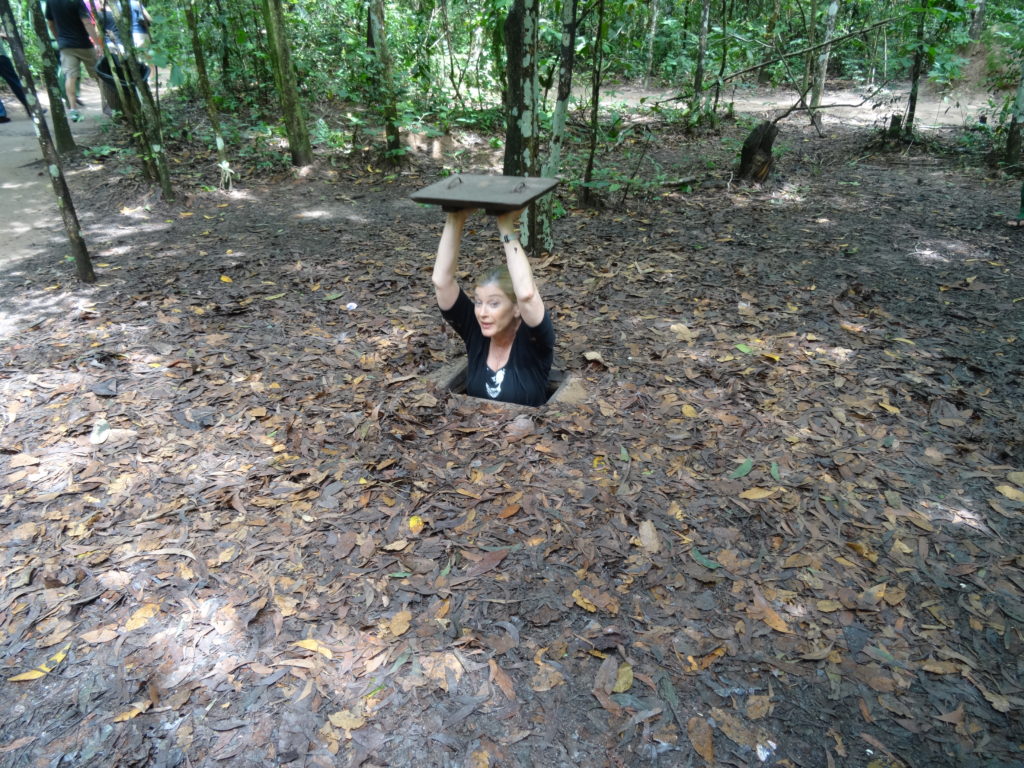
Tunnels gave the Viet Cong the element of surprise as they battled American troops during the Vietnam War.
Walking through the tunnel exhibit with M16 and AK 47 gunfire crackling in the background was an eerie experience. Our group of four included three Australians and me, an American. Our tour guide spoke limited English but had his “script” down pat and made a point of looking at me when mentioning the US “atrocities” in the war. He also showed off B-52 bomb craters and the many different methods jungle fighters devised to kill unsuspecting GIs.
The highlight is walking through the tunnels — too low for the average person to stand up in. You’ll even be invited to sit at an outdoor table for tea and chewy jungle roots — what Vietnamese fighters were reduced to eating. Be prepared for the propaganda film’s narration: “The Americans, acting like crazed dogs, bombed the peaceful village of Cu Chi…”
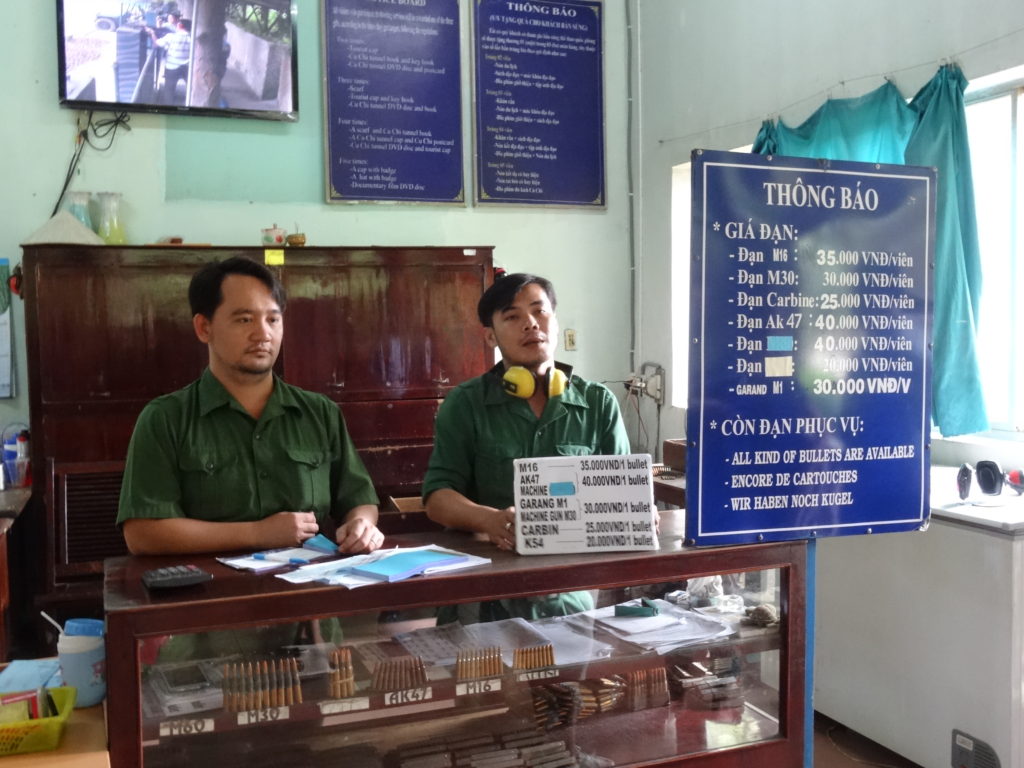
Selling ammo at the firing range for tourists visiting the Cu Chi Tunnels in Vietnam.
Spend your time in the tunnels and skip the firing range: it’s expensive and the guns are on fixed mount, so it’s just an exercise in pulling the trigger without aiming at anything. You get the feeling of the blurred lines in this war when you hear about the senior citizens, women and children who are depicted alternatively as brave fighters and innocent victims. Hard to tell, then and now. Respect to all who served.
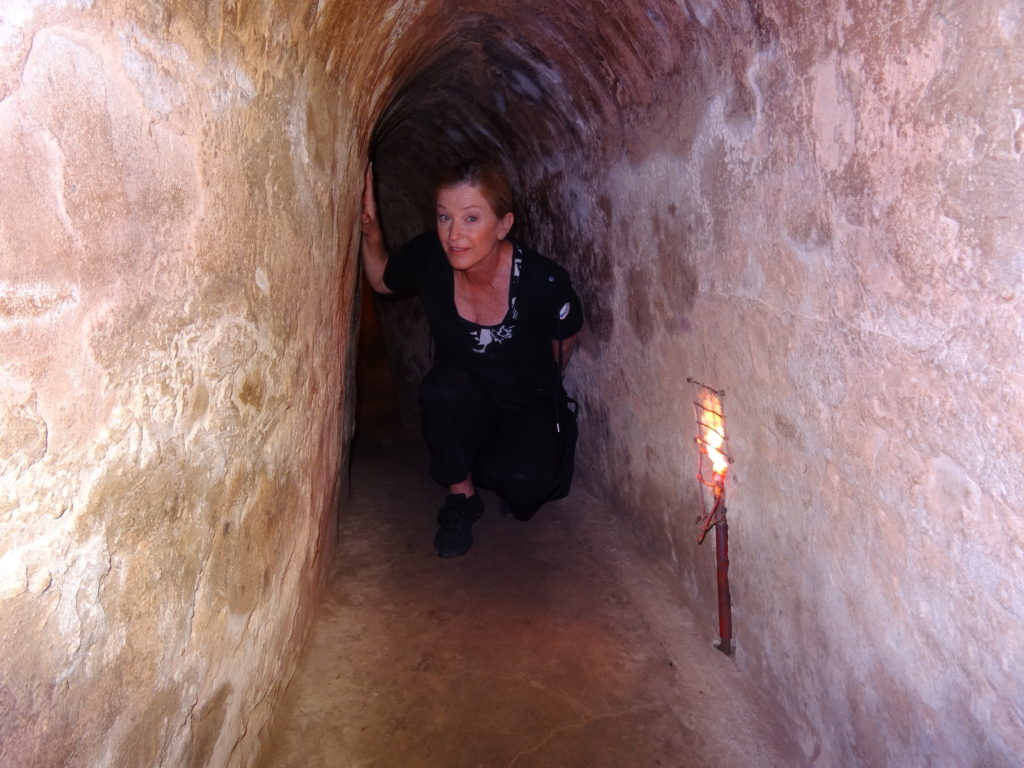
Crouching through the Cu Chi Tunnels was the highlight of my visit. I’m only 5-feet 4 inches tall (163 cm) but couldn’t stand up.
War Remnants Museum in Ho Chi Minh City
Compared to a similar museum in Hanoi, the War Remnants Museum in Saigon had more of an attitude. In fact, it was known as the American War Crimes museum before a trade deal with the US led to a name change. Deformed fetuses are displayed in jars to show the effects of Agent Orange. You’ll also see the “tiger cages” from prisons in the South.
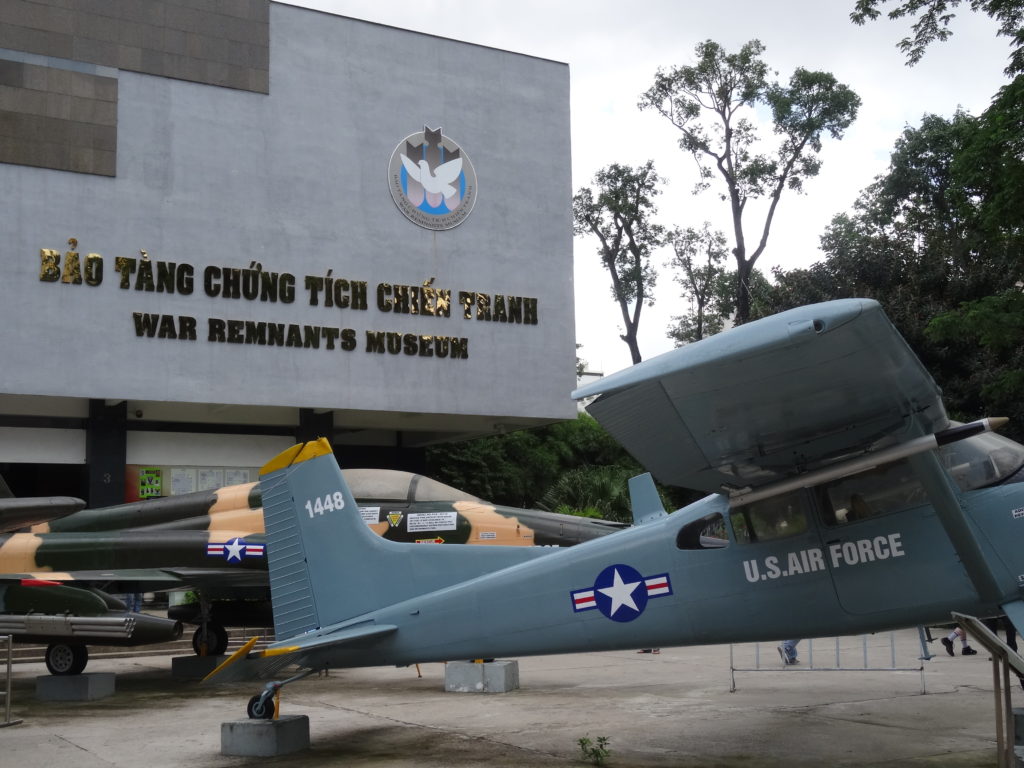
Once called the American War Crimes Museum, the name of the War Remnants Museum in Ho Chi Minh City was changed because of a trade deal between Vietnam and the US.
Don’t miss the truly moving photography exhibit which includes frames from the last roll of film shot by photographers of different nationalities who died while covering combat from both sides. There are also iconic images such as the “napalm girl,” a Pulitzer prize-winning photograph by Nick Ut of the Associated Press. Makes you appreciate the suffering on all sides and the crucial role of journalists in covering the war. The spin feels like an overload after a while and it feels a bit dated, but don’t miss it if you are interested in this version of history.
Saigon Flashback at the Reunification Palace
The Reunification Palace is frozen in time, perhaps intended to show the decadence of what the exhibits often refer to as the puppet regime in South Vietnam. Or perhaps a monument to the hideous blockiness of 1960s architecture, take your pick. The war bunker and shooting range in the basement, as well as the movie theater and gambling room on the top floor give this place a bit of a Dr. Strangelove feel, and the kids will wonder what all those old teletypes and rotary phones were used for. Maybe a little shabby in spots but take your time and soak up the history.
Drink like a Vietnam War Correspondent at Saigon Saigon Bar
Saigon Saigon Bar, on the top floor of the Caravelle Hotel. I came here during happy hour, enjoyed the half-price, really cold beer and sunset view from the roof of the building that used to house American news organizations covering the Vietnam war. Did Walter Cronkite ever sit here? You can look across to the Rex Hotel where the neon sign says the daily briefing known as the “five o’clock follies” was held. A good place to raise your glass to the correspondents who informed the world about the war.

